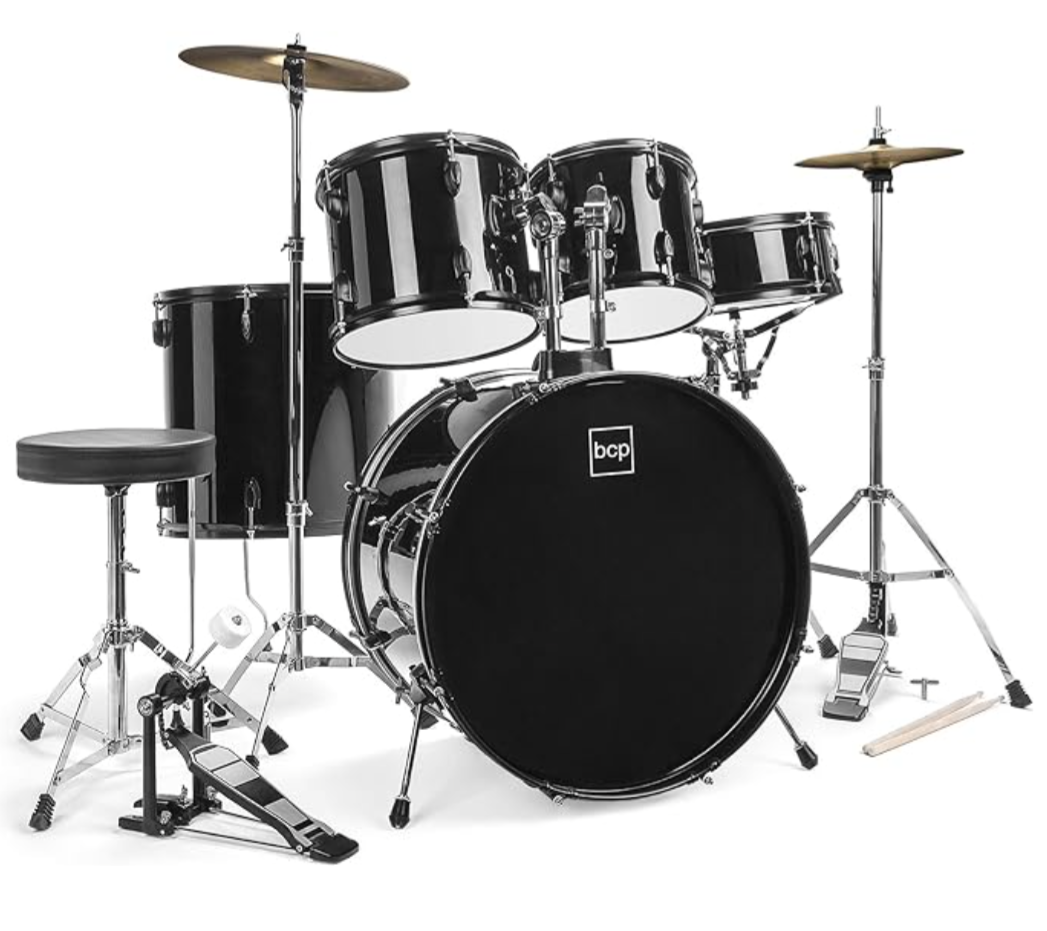
Dreams of becoming a professional drummer often begin with rhythmic tap-tap-taps on tables, steering wheels, and any other surface that lends itself to the beat. But how does one transition from these humble beginnings to playing on the world’s biggest stages? Welcome to your ultimate guide on how to become a drummer in the music industry.
Developing the Basics
Before embarking on your journey to becoming a drummer, it’s important to develop the basic skills and techniques. These include:
- Hand and Foot Coordination: Drumming requires coordination between both hands and feet, so practice exercises that enhance this skill.
- Rhythm and Timing: Being able to keep steady rhythm and timing is crucial for any drummer. Start by practicing with a metronome or backing tracks.
- Proper Grip: The way you hold your drumsticks can greatly affect your speed, control, and sound. Experiment with different grips until you find what works best for you.
- Stick Control: Practice controlling the volume and sound of your drums by experimenting with various strokes (e.g., full stroke, tap stroke
The Journey Begins Understanding the Passion and Commitment
Becoming a drummer is more than just learning how to keep time; it’s about passion, dedication, and a love for music. Your first step in becoming a professional drummer is to immerse yourself in the world of drumming. Listen to a variety of genres, pay attention to different drumming styles, and start identifying the drummers that inspire you. This will help you find your own unique style and develop a deep understanding of the instrument.
Building Your Foundation The Importance of Practice
Practice truly makes perfect when it comes to drumming. Setting aside time every day to practice different techniques, rhythms, and songs is essential in developing your skills as a drummer. Start with the basics, such as learning how to hold the sticks correctly and playing simple beats before moving on to more complex patterns. Remember, consistency is key in mastering any instrument.
Finding Your Beat The Different Styles of Drumming
Drummers are versatile musicians who can play a wide range of styles, from rock and metal to jazz and blues. As you continue on your journey towards becoming a drummer, take the time to explore different genres and styles of drumming. This will not only broaden your musical knowledge but also help you find your own unique sound as a musician.
Learning from the Pros The Importance of Taking Lessons
While self-teaching can be beneficial, there is no substitute for taking lessons from experienced and skilled drummers. A professional instructor can provide valuable guidance, teach proper techniques, and help you improve in areas where you may struggle. Additionally, they can introduce you to new styles and expand your repertoire.
Navigating the Industry Networking and Building Connections
Like any other profession, networking is crucial in the music industry. Connect with other musicians, attend workshops or seminars, and consider joining a local band or ensemble to gain experience playing with others. Building these connections can open doors for opportunities and collaborations in the future.
The Drummer’s Role in a Band Teamwork and Communication
As a drummer, you are not only responsible for keeping rhythm but also setting the tone for the entire band. It is essential to communicate with your fellow musicians and work together as a team to create cohesive and dynamic performances. Remember to listen and be attentive to the needs of the other instruments.
Final Thoughts Keep Enjoying the Journey
Learning how to drum takes time, dedication, and patience. It is a journey that will have its ups and downs, but always remember to enjoy every step of the way. As you continue practicing, trying new styles, learning from others, and building connections, never lose sight of why you
Investing in the Right Equipment
Learning how to become a good drummer starts with having the right tools. After all, a craftsman is only as good as his tools. Thankfully, Amazon carries drums that professional drummers and studios use. Here are a few highly recommended drum sets to get you started:
- Pearl Export EXX
- Ludwig Breakbeats by Questlove
- Mapex Tornado III
- Gretsch Drums Renown 3-piece
Before making a purchase, do some research and try out different drum sets to find the one that best suits your style and needs. Don’t be afraid to invest in quality equipment as it will greatly improve your sound and overall experience as a drummer.
Yamaha Stage Custom Birch 5pc Drum Shell Pack – 22″ Kick, Cranberry Red
This set is perfect for beginners and professionals alike. Its high-quality birch shells provide a great tone and durability, making it an excellent investment for anyone serious about drumming.
Pearl Roadshow Drum Set 5-Piece Complete Kit with Cymbals and Stands, Charcoal Metallic
This complete kit is ideal for those who want everything in one package. It includes cymbals, stands, and drums, all built to last and produce fantastic sound.
For those who need a quieter option for practice or performance, this electronic set offers the feel of an acoustic drum set with the versatility of electronic sounds.
The Importance of Continued Learning and Growth
Learning how to drum doesn’t end after you’ve mastered the basics. It’s important to continue learning new techniques, styles, and expanding your skills. Attend workshops or take lessons from experienced drummers to gain insight and improve your craft. Always strive for growth and never stop challenging yourself.
The Importance of Education
While natural talent is essential, learning how to get better at drumming often requires formal education. Consider taking lessons from a professional drummer or enrolling in music school. If attending a school isn’t feasible, online courses and tutorials can also provide invaluable guidance. Websites like Drumeo offer comprehensive lessons that cover everything from basic techniques to advanced drumming skills. YouTube channels such as “Stephen Taylor Drum Lessons” and “The 80/20 Drummer” also offer free instructional content.
Embracing Your Own Style
While it’s crucial to learn from others and expand your knowledge, don’t be afraid to embrace your unique style. Experiment with different techniques, rhythms, and sounds to find what feels most natural and exciting to you. This will not only help you develop a signature sound but also keep your drumming fresh and innovative.
Maintaining Your Drums
Regular maintenance is key to keeping your drums in top shape and ensuring they produce the best sound possible. Clean your drums regularly, replace worn-out heads, and tune
Practice Makes Perfect
There’s no shortcut to becoming a professional drummer; it takes hours of dedicated practice. Set up a regular practice schedule and stick to it. Focus on various aspects of drumming, including:
- Rudiments and Techniques Practice your drumming rudiments daily. These are the building blocks of your drumming skills.
- Timing and Rhythm Use a metronome to refine your timing and rhythm.
- Musicality Play along with different genres of music to understand various drumming styles.
- Creativity Don’t just mimic other drummers; develop your unique style.
Networking and Building Your Brand
In the music industry, who you know can be just as important as what you know. Attend music events, join local bands, and network with other musicians. Building a strong personal brand is also crucial. Create a professional online presence through social media and a personal website showcasing your skills, performances, and achievements.
Gaining Experience
Experience is invaluable in becoming a professional drummer. Start by playing in local bands, attending open mic nights, and performing in various venues. The more you play, the better you’ll become and the more exposure you’ll gain. Eventually, you may get opportunities to audition for bigger gigs or even join a touring band.
Staying Inspired
The path to becoming a professional drummer is filled with challenges, but staying inspired is key. Surround yourself with a supportive community, keep learning, and always seek new experiences and opportunities. Remember, every drummer started where you are now, and persistence will take you far.
Conclusion Your Journey Awaits
Becoming a professional drummer in the music industry is a challenging but rewarding journey. With the right equipment, education, practice, networking, and experience, you can turn your passion for drumming into a successful career.
Ready to take the next step? Subscribe to my email list to learn more about music, get exclusive tips, and join a community. Your dream of playing on the big stage is closer than you think.






